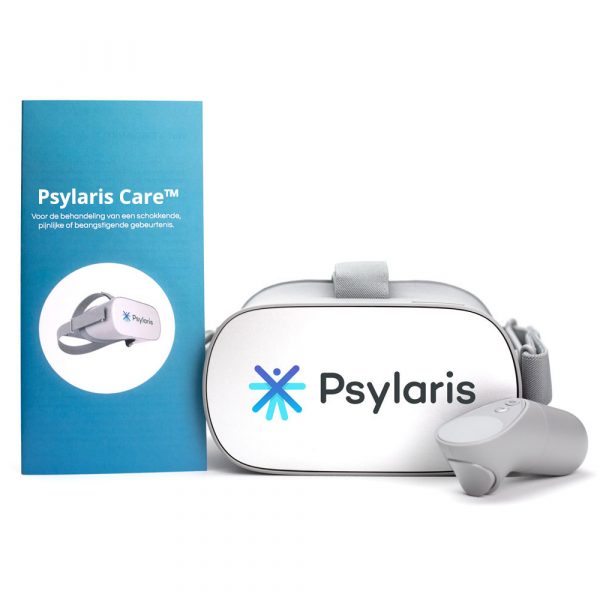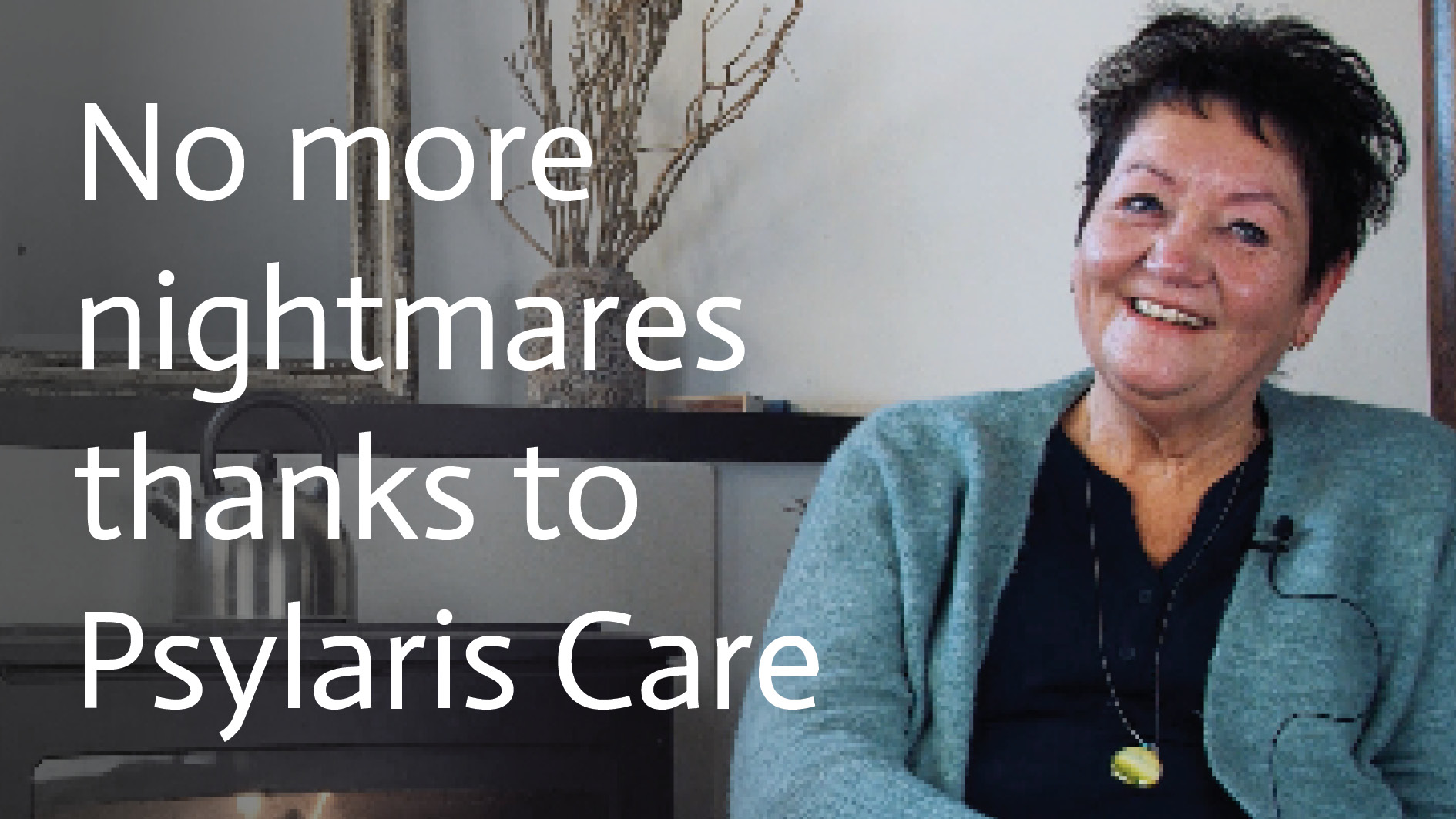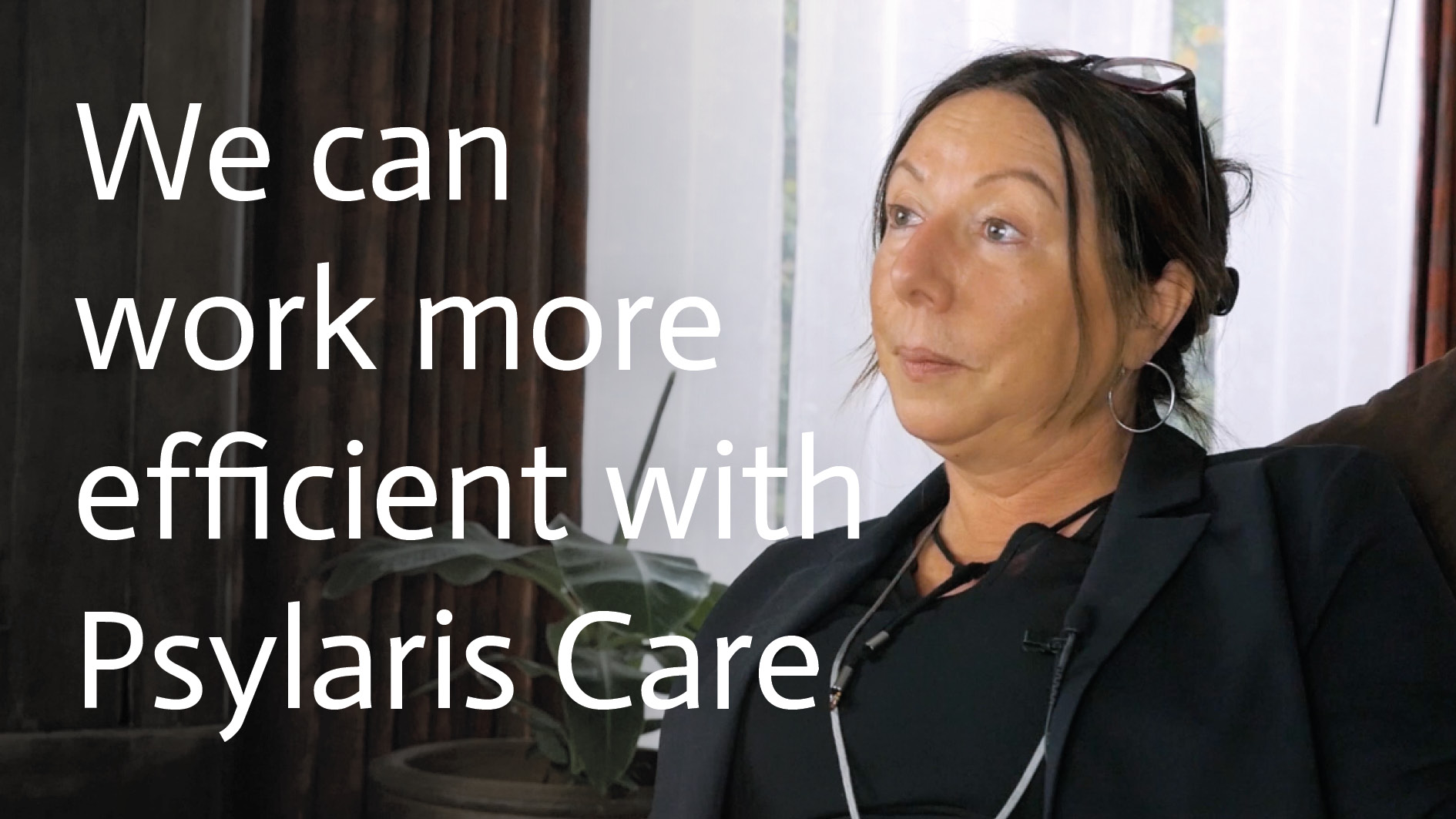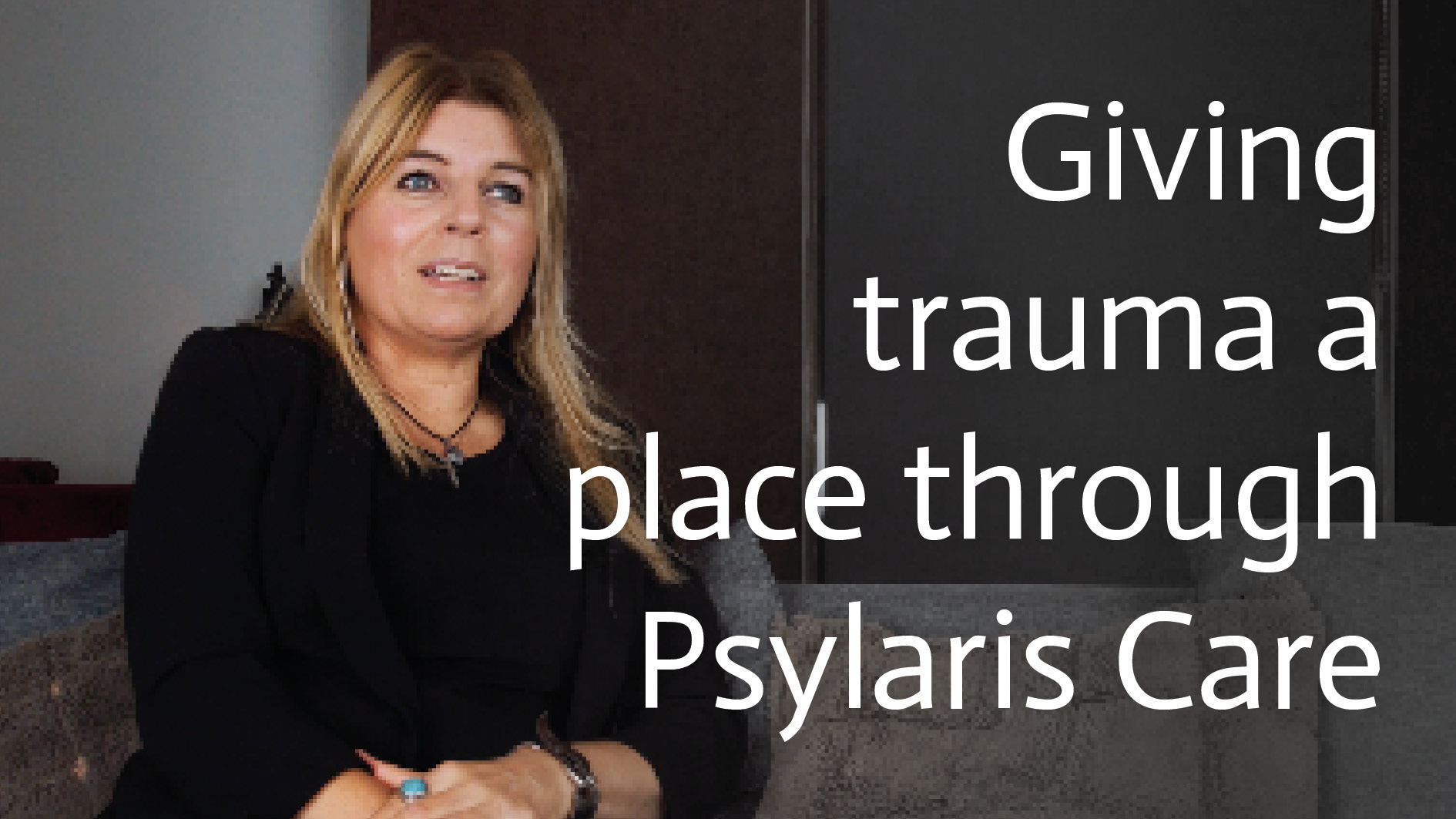850+
Organizations use Psylaris products
5500+
Therapists use our software worldwide
75.000+
Completed sessions with our applications
All about EMDR
Scroll down to start reading, or use the table of contents.
EMDR is a form of therapy in which the memory of a traumatic experience is central and in which the therapist distracts you with hand movements or sounds. EMDR is the abbreviation for Eye Movement Desensitization and Reprocessing. The name says a lot about the question 'what is EMDR?' The eyes and hands play an important role. At the moment you think about your trauma, the therapist asks you to follow the specific hand movements with your eyes. This distracts you from your trauma. After this, the therapist will ask you again what you are thinking about and again distract you. Because remembering the traumatic experience is heavy, the therapist will take the necessary breaks. Eventually, you will notice that during the course of the treatment, the feelings in relation to the trauma will change and may even fade.
The EMDR therapy was developed over 30 years ago by the American psychologist Francine Shapiro. By chance she found out that quickly blinking her eyes distracted her from negative thoughts and that certain negative memories became less intense. She started working on this and developed the EMDR therapy as we know it today.

If, as a therapist, you want to work with the EMDR treatment method, you have to get certified. The method is different from regular psychological treatment, in which the focus is mainly on having conversations in order to facilitate trauma treatment. With EMDR, the trauma is not only treated by means of a conversation. The client will actually have to re-experience the moment and you as the therapist will treat it by means of distraction. The classic face-to-face EMDR therapy does not have to take place anymore.
With the EMDR products for therapists from Psylaris, EMDR therapy becomes even easier for both therapist and client. Very popular is EMDR-remote, whereby you treat clients remotely online. This is an ultra-modern method using image calling and in which the client is even better distracted by various distraction tasks. Psylaris has also come up with a virtual reality solution for EMDR therapy. Even though the client is sitting in your treatment room, through VR goggles the client can concentrate even better on the distraction tasks you have set. On average, EMDR via VR shortens the treatment process.

Shocking events may occur in your life, and you may have difficulty processing them. Such an event is sometimes called a trauma. A trauma can be caused, for example, by an accident, a serious illness, a violent robbery, assault, sexual abuse, a natural disaster and war situations. For most people who have experienced a traumatic event, after some time they give the trauma a place and move on. But not everyone can do this and they will still suffer from it later in life.
Unresolved trauma can cause all kinds of problems. For example, you can develop an anxiety or panic disorder or post-traumatic stress disorder (PTSS). This means that you keep reliving the traumatic event and you cannot get on with your life. It is even possible that you end up in social isolation, because you try to avoid certain situations. Common complaints of an unprocessed trauma are also depression, sleeping problems, stress, becoming irritable much more easily or a negative self-image. In short, you do well to follow an EMDR therapy if the above complaints seem familiar to you. However, it is important that you find a competent therapist who has completed the appropriate EMDR training and education.
When you choose for a treatment with an EMDR therapist, an EMDR treatment plan will be drawn up. You do not just drop in on the therapist for an EMDR treatment. You will first have an extensive intake with your therapist.
Your symptoms and the possible cause of these symptoms are discussed. The practitioner will then know more about your background and your traumatic experience, also whether EMDR therapy is suitable for you. EMDR therapy can be quite intensive, involving various emotions and feelings. It is up to the therapist to make a good assessment of whether the client can handle these emotions. EMDR is a therapy in which you gradually give your trauma a place. If certain emotions are still too much for you, the therapist will offer a treatment that is more suitable for you.
During the treatment itself, the therapist will ask you to recall the moment of the trauma. This can be frightening if you have been trying to avoid this memory for a long time. Especially because you not only have to recall the images, but also what is going through your mind at that moment and what your feelings were at that moment. Yet you have to allow this, because it is the only method to start the processing. This will take place through distraction by means of certain hand gestures of the therapist or through sounds via headphones. Afterwards the therapist asks what you are thinking about at that moment and again you are distracted. It may be that a whole stream of images, thoughts and feelings start. Again and again you are distracted and at appropriate moments a break is inserted.
The ultimate effect of this EMDR therapy is that the traumatic memory loses its emotional value. Emotions you have with images, feelings and thoughts at that moment decrease in strength and intensity. You will notice that you can think back to the trauma much more easily. It may also be that the memory becomes weaker. Others experience that when they think back to a terrible event, new thoughts arise spontaneously, which make the trauma seem less threatening. In this way you will succeed more and more in giving the trauma a place and in regarding it as part of your life history.
In principle, EMDR is suitable for everyone who is struggling with an unprocessed traumatic experience. It is a very good psychological therapy that can prevent and resolve various complaints. Partly because the trauma is unprocessed, it affects all sorts of areas, both emotionally and physically. Physical complaints can even be related to unprocessed memories. In addition, EMDR is increasingly used for complaints such as eating disorders, depression and addictions. For some groups, EMDR is certainly beneficial.
PTSD is the English abbreviation for Post Traumatic Stress Disorder. PTSD is caused by going through a shocking or traumatic experience and you are not able to process this event and give it a place. It usually concerns serious events that have a deep impact on a person's life, such as an accident, sexual abuse or a violent robbery or assault. War veterans who have come into contact with war situations also relatively often suffer from PTSD.
The symptoms of PTSD can be very diverse. Common complaints are depression, becoming irritable or even throwing a tantrum. Also concentration problems, sleeping problems and suicidal behaviour are frequently seen in people who suffer from PTSD. A recognisable symptom is the avoidance of certain situations, locations and/or people. A certain situation or location brings back painful memories. So these situations are avoided and the PTSD patient ends up in social isolation. A diagnosis of PTSD can only be made once the symptoms have lasted longer than a month. If the symptoms last shorter, this is seen as a logical consequence of the traumatic experience and the time it takes to process them.
Psychological treatments are preferable to prescribing medication for PTSD. EMDR therapy is pre-eminently the best psychological treatment for PTSD. In EMDR therapy, the emphasis is on facing a traumatic event, something that the person suffering from PTSD has a lot of difficulty with. Patients with PTSD usually achieve good results with EMDR therapy.
Everyone goes through a situation where they experience a certain fear. This is perfectly normal and, in certain situations, necessary in order to stay alert. There are also people who experience fear constantly. And it does not even concern shocking situations or experiences. You can suffer from an anxiety disorder, in which a situation occurs that you suddenly become very anxious about. You then try to avoid the situation, location or person, isolating yourself. This will only confirm the fear and you will not be able to get rid of it. A fear almost always goes hand in hand with a phobia.
In many cases, people cannot remember when the fear or phobia has arisen. A fear of spiders is the best known example of this. Few people have had a traumatic experience with a spider and have a fear of spiders because the animal does not look cuddly. On the other hand, a fear can be triggered by a traumatic experience. The moment at which the fear arose can then be traced relatively easily. Think of someone who has had a fearful experience with a dog and suffers from a fear of dogs.
If a certain fear has always been present, then a EMDR treatment less suitable. These fears are best treated by means of a form of behavioural therapy. If a fear can be related to a traumatic experience, EMDR therapy is very suitable. Partly because you go back to the traumatic moment during the treatment, you can process it more easily with EMDR and it is possible to get rid of your fears.

Depression is mainly characterised by an almost continuous gloomy mood. Loss of interest or enjoyment of the pleasant things in life are also characteristic of depression. Furthermore, during a depression you can suffer from other symptoms, such as loss of energy or a continuous fatigue and listlessness. Disturbed sleep patterns, sleeplessness or sleeping more than usual are also symptoms of depression. Depression can have a major impact on daily life and even suicidal thoughts are not uncommon in a deep depression.
There is no single cause for depression. Tension and stress can be an important cause, but also certain psychological and psychosocial factors. For many people with depression, hereditary predisposition also plays a role. It is usually a combination of various factors that ultimately lead to depression. Then there is a group of people who become depressed because of a traumatic experience. They have difficulty processing the trauma and remain stuck in it. The film of the moment of the traumatic experience is played over and over again, which increases the chance of a Depression increases.
It is precisely the latter group, who have developed depression through a traumatic experience, that benefit greatly from EMDR therapy. Often, a short EMDR treatment is sufficient to achieve quick results. For other forms of depression, other treatments are more effective, such as behavioural therapy or psychotherapy.
If you have developed a panic disorder, you may suffer from severe panic attacks, which can have a major impact on your daily life. Everyone has a feeling of panic at some point, and they should. In fact, it would be very unhealthy not to feel panic in the face of imminent danger. Panic is a form of warning. With a panic disorder, you can have an attack even when there is no danger. The panic attack can sometimes occur out of nowhere.
Especially a very first panic attack can be experienced as very drastic and traumatic. So traumatic, in fact, that one desperately tries to avoid ending up in the same situation as when the panic attack started. This can lead to agoraphobia. This means that people want to avoid at all costs a situation in which another panic attack can occur. Usually this involves avoiding crowded places, such as the supermarket, the market or public transport. This ultimately leads to loneliness and social isolation.
A panic disorder cannot always be treated with EMDR. Sometimes treatments, such as behavioural therapy are a better solution. Was a first panic disorder so traumatic that it controlled your whole life? Then an EMDR therapy can be very useful to process this trauma.
Besides the symptoms mentioned above, EMDR can be suitable for other complaints, such as concentration problems, increased stress, sleeping problems and getting a short fuse, so you are much more easily irritated. If you have these symptoms and there is a direct link with a traumatic event, EMDR is a good therapy to get rid of them.
Have you been walking around with physical complaints for a while and can't seem to find a cause for them? The chance is certainly present that this has a psychological cause. There are people who have been walking around for years with unexplained physical complaints and whose doctors have been unable to make a diagnosis. Have you ever suffered a trauma? Then it could be that your physical complaints are connected to this. With EMDR, you go back to this trauma and learn to process it. You will notice that your physical complaints may just be over when the EMDR treatment takes effect.
EMDR therapy was developed over 30 years ago and has been demonstrably successful. This is confirmed by many psychologists and scientific reports. Although there should be no doubt about this, it is all the more strange that there is not yet a clear view of how EMDR therapy works on the brain. EMDR stands, among other things, for 'Eye Movement'. Psychologists thought that EMDR therapy worked through eye movements. When it turned out later that beeps also work with EMDR, the theory of eye movements was outdated.
The most clear explanation of how EMDR works on the brain is currently seen in the so-called working memory theory. This theory is also taught during EMDR training. The working memory is central here. This is the long-term memory where all memories are stored. During the EMDR treatment you are asked to retrieve the traumatic memory from the working memory. If you are retrieving the memory and at the same time you are distracted by moving fingers or a sound, the working memory gets overloaded. The working memory simply cannot cope. This creates a distance from the memory. The memory that you then put back in the working memory is now less loaded with emotion, which makes it easier to retrieve the memory the next time. It is not that the memory changes, but you do look at it in a different and less emotional way.
EMDR is about processing a traumatic event. Various therapies are available for this, including EMDR therapy. EMDR is an officially recognised method by the science recognised therapy. There are sufficient scientific studies that confirm that EMDR is successful in a relatively short period of time. On this basis, therapists can also follow a scientifically substantiated EMDR training.
The classic method for an EMDR treatment is to use the hands or sounds to distract the patient. Here, patient and therapist sit physically together. With the current modern techniques, various tools for EMDR have come on the market, which also allows for therapy at a distance. Psylaris has released various tools for this purpose.
With special EMDR software, you can give EMDR therapy online via Psylaris. A big advantage of this is that treatment at a distance is possible. For this purpose, Psylaris has the online platform EMDR-remote. You log in via a web browser, you don't need to install anything. All patient data is safely stored and as a therapist you get access to many distraction tasks. With colours, speeds, sounds or arithmetic, patients can easily be distracted via the screen. The platform also offers the possibility of video calling. With online EMDR from Psylaris, you offer your patients even better facilities.
EMDR-remote, the online EMDR treatment of Psylaris, is not only accessible via a laptop or PC. It can also be accessed via a special online EMDR tool. Treatments may be easier to use on a larger screen of a PC or laptop, but it is convenient to log into the online platform via the app. In this way, the therapist can access patient data anytime, anywhere.
The latest tools from Psylaris provide positive EMDR therapy experiences from practitioners, mental health institutions and patients alike. As great advantage is experienced the flexibility, so that treatment can also be done remotely and the large range of distraction tasks. With a clear dashboard, the therapist always has insight into the patient data. The online EMDR tools and VR glasses are successfully used at both large and small GGZ institutions.
All EMDR products of Psylaris are based on scientific studies. The latest treatment methods are always included, so that the products are always up-to-date. Development of the products always takes place in cooperation with recognised psychologists and mental health institutions, and therefore the products are extensively tested on the end users.

The goal of Psylaris is to support therapists even better with sufficient EMDR techniques and tools. EMDR in virtual reality is the latest development. The Psylaris Care consists of virtual reality (VR) glasses that can be connected to various modules. Initially, the VR glasses are used in the treatment room and ensure that the patient enters a virtual environment. This ensures an intensive treatment, making a shorter course of treatment necessary. If the patient is ready, the glasses can be given to him or her for use at home, which means that treatment can also take place at home. There are various modules available for the VR glasses. Besides the EMDR module, there is also a module for the treatment of fear, phobia and stress. Psylaris continues to develop, so that more modules will be released in the near future for an even wider range of treatment.
We believe with the combination of intelligent software and qualified therapists we can develop a system in which everyone, anytime and anywhere has direct access to efficient and affordable psychological care.




This website uses cookies to ensure that you get the best experience on our website.